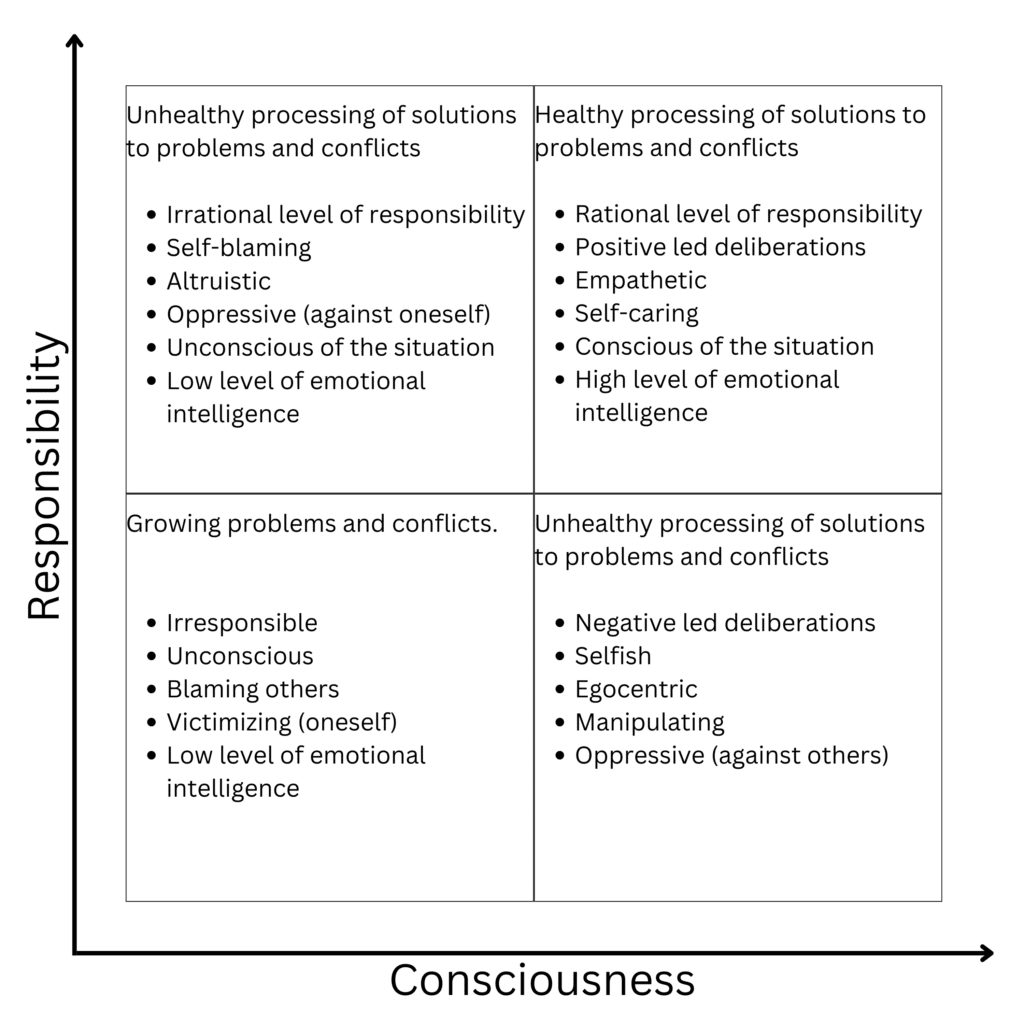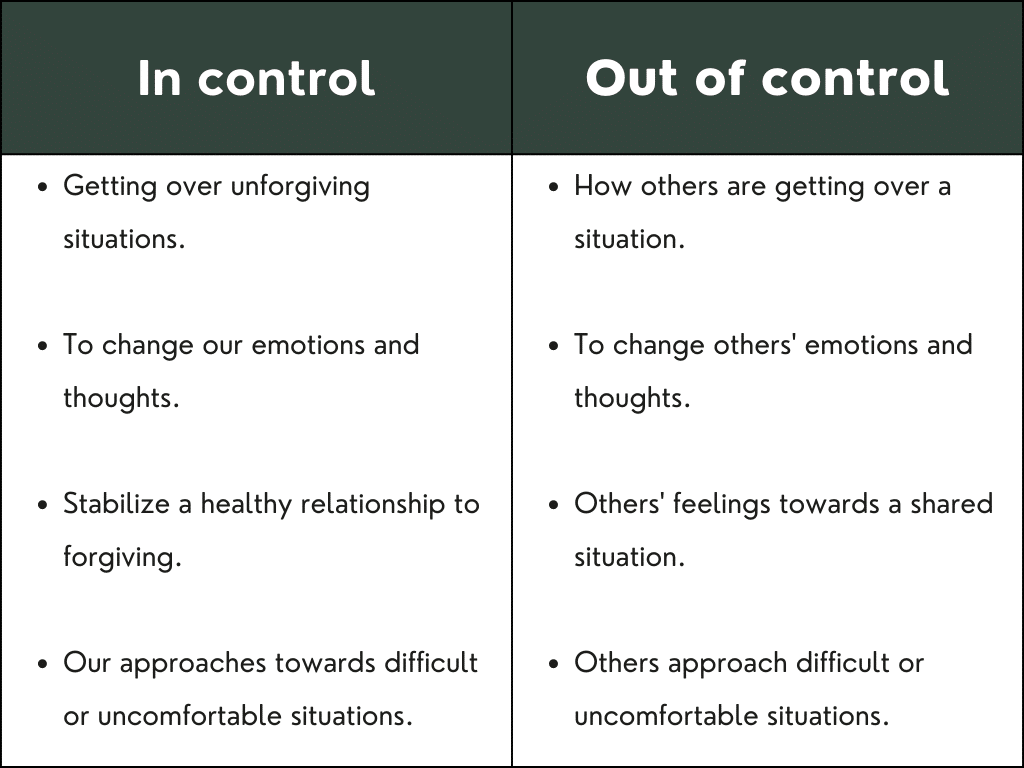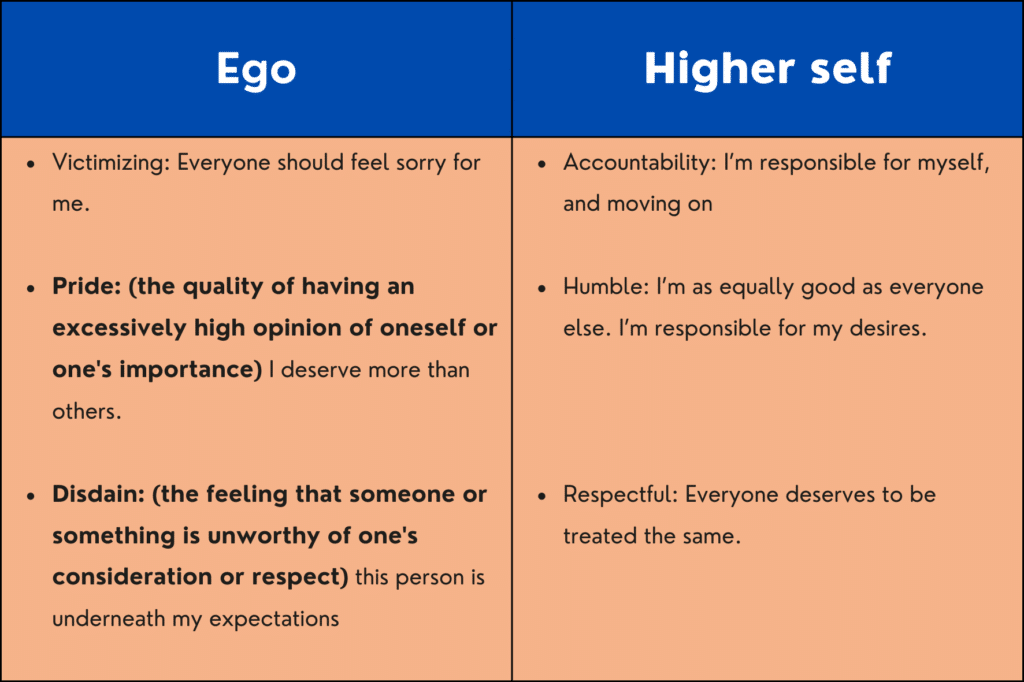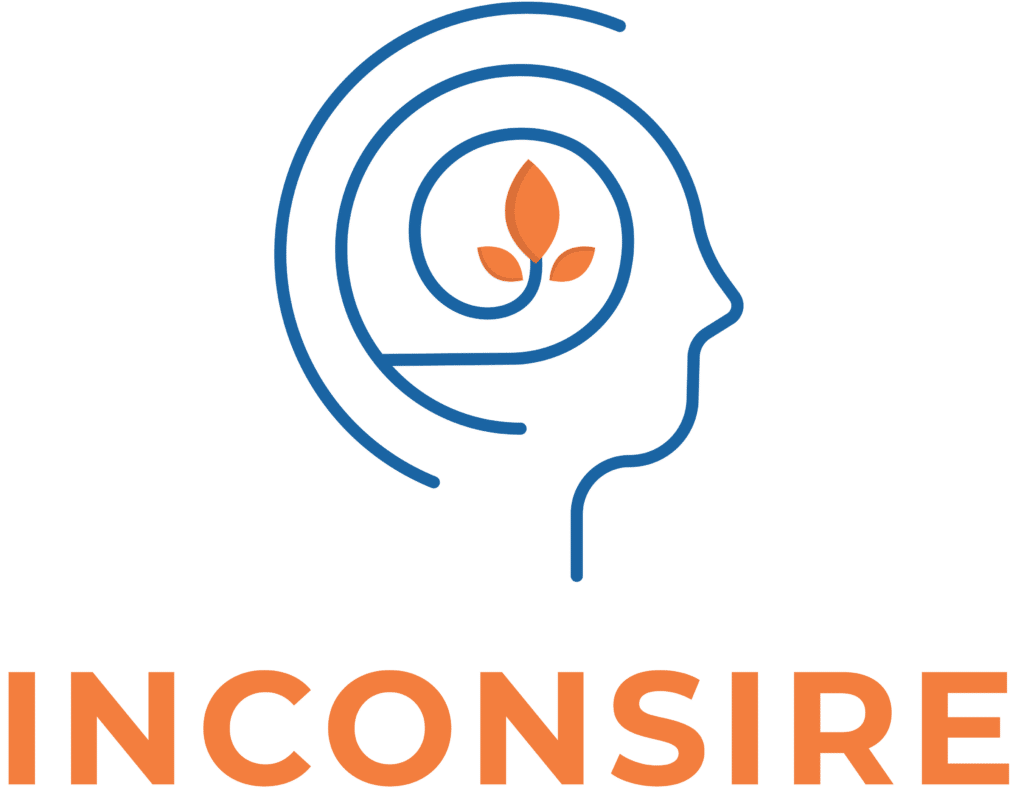Taking responsibility is always difficult at first, but it is essential. If we want something to happen, to have a certain lifestyle, to see results, to be successful, to move on from the past, etc., we must act consciously and purposefully and take responsibility for making it happen. It is crucial to take a certain degree of responsibility if we have desires, goals, or purposes we want to fulfill, or if we want to overcome mental challenges and negative influences.
Ways to Exercise Responsibility
Responsibility can be exercised in two ways:
- Admitting our mistakes and taking responsibility for our behavior and actions.
- Taking responsibility for moving on from the irresponsibility of others that has caused us pain.
Regardless of the situation, mastering responsibility is necessary if we want to achieve our goals.
Responsibility and Awareness
We can develop our understanding of responsibility by increasing our awareness (of where our actions and feelings originate through our thoughts). When we become aware, we can analyze situations that are difficult to handle and process them with positive reflections to find a healthy solution to a problem or conflict.
Awareness helps us recognize whether the actions we and others take are just or unjust. Through awareness, we can resolve conflicts by reflecting on situations that affect us negatively—either by admitting our own mistakes or accepting the outcome of a situation.
Our level of responsibility can be measured by our level of awareness. The more we become aware of what we can be responsible for and what it means to take responsibility, the easier it becomes to resolve conflicts and problems in a healthy way.
The higher we raise our responsibility level in combination with our awareness, the healthier our handling and resolution of conflicts or problems will be—emotionally, physically, and mentally. We can also assess the balance of responsibility by evaluating how much responsibility we take in relation to our level of awareness.
If we lean too much to one side, it can lead to an unhealthy outcome. Understanding when responsibility is properly balanced requires reflection on our own actions in accordance with our morals and principles.

Develop Awareness of Morals and Principles
To increase responsibility, we should have morals (standards of behavior; principles of right and wrong) and principles (fundamental truths or beliefs that form the foundation of our actions and decisions). These help us establish a foundation from which we can act and motivate us to take responsibility.
Examples of morals and principles include:
- Be the better person.
- Show care and love.
- Be kind to others.
If you do not currently follow any morals or principles or are not aware of them, it is a good idea to start making a list. A solid set of moral and principled guidelines can give us reasons to act responsibly and make conscious decisions that align with the values we want to live by.
List of What Is in and out of Your Control
We need to know what our responsibilities are—this includes our actions, decisions, thoughts, feelings, and irresponsibility. We cannot take responsibility for other people’s behavior, but we can take responsibility for what is within our control.
Create a list of what is within and outside your control. Narrow it down specifically to the things you typically interact with in your daily life, as well as events you regularly face that can trigger negative emotions.

When writing down your problems, look for patterns such as:
- Problems influenced by others.
- Problems from the past.
- General problems.
Once you have written a list of problems, accept and acknowledge that it is your responsibility to overcome them.
Start by asking questions about your problems, such as:
- Why do I have this problem?
- Does it benefit me in any way? (If not, let it go.)
- Does it have to be a problem?
- What should I do to move past this problem?
If you are facing ethical problems (situations that arise due to a moral conflict that needs to be handled), be mindful of taking responsibility in the situation. Ethical problems can arise in discussions where we tend to seek to be right rather than to learn. Sometimes, the best way to handle these problems is by understanding why they exist. When we understand the cause and still face challenges, we can take responsibility and act constructively.
To-Do Lists
Create a to-do list with three tasks you must complete before the end of the day. You can plan them the day before or in the morning. Start with tasks you know you can accomplish and build your level of responsibility by completing three things every day.
To-do lists may include tasks such as:
- Make the bed.
- Send an email.
- Meditate daily.
To-do lists are a great tool for developing responsibility. They give us a structured commitment, creating a sense of the tasks we need to complete for a more meaningful and successful day. As long as our to-do lists point us in the right direction, they will be beneficial.
Practice Empathy
Empathy (the ability to understand the feelings and actions of others) helps us see responsibility in a more nuanced way and provides us with different perspectives. Empathy enables us to understand how responsibility functions in relationships and helps us consider different viewpoints openly.
We can work with empathy and responsibility in a three-step process:
- Take a problem or conflict you have with a person or group. Understand why the conflict exists.
- Make a list of actions that triggered the conflict, both for yourself and the other party, and categorize them as either problem-solving or conflict-escalating.
- Take responsibility for any unfair actions. Apologize or acknowledge that these actions should not be repeated.
For more information on empathy: Click Here
Practice Forgiveness
Responsibility and forgiveness (the ability to let go of negative feelings from past experiences) go hand in hand. We often tend to blame others or see ourselves as victims of negative situations, which is not beneficial. Forgiveness is about accepting and acknowledging the outcome of a situation and taking responsibility for finding beneficial solutions.
To combine forgiveness and responsibility, we can analyze situations we struggle with and:
- Determine why we have the problem. Are we blaming others or ourselves?
- Forgive by understanding the causes of the problem, whether they stem from conscious or unconscious actions.
- Take responsibility for finding a solution that benefits our lives and learn from the experiences.
In many situations, we can easily let unpleasant moments slide, but to release deeper negatively driven emotions and patterns, we must understand why we have the problem(s) in order to know how to handle them.
For more information on forgiveness: Click Here
Practice Mindfulness
Mindfulness (a mental state achieved by focusing one’s attention on the present moment while calmly acknowledging and accepting one’s feelings, thoughts, and bodily sensations) is a practice that helps us become aware of our emotions and thoughts in the present. It can create awareness of the resentment we hold toward ourselves and others and help us address the problems we need to take responsibility for. Mindfulness helps us become responsible in the present moment. Responsibility is carried out in the now. When we increase our awareness of the present, we can navigate more responsibly.
Before diving into mindfulness exercises, we need to establish some fundamental conditions for practicing them effectively:
- Openness – Accept that your thoughts exist, but you don’t have to act on them.
- Awareness of your breathing – Give your full attention to the exercises.
- Patience – Allow yourself time to ease into mindfulness practices.
These three elements are necessary to understand and fully experience what these exercises can achieve.
Meditation
Take 5–10 minutes out of your day to do absolutely nothing except breathe. That means no phone, no emails, no TV, and no coffee. Sit upright or lie down in a quiet space without distractions. Close your eyes and focus solely on your breath—inhale deeply into your lungs and stomach, then exhale when ready.
Meditation helps us distance ourselves from our thoughts so that we can observe them from different perspectives. By focusing only on our breath, our thoughts gradually settle, allowing us to identify what we should pay attention to and how to act responsibly.
For more information on meditation: Click here
Visualization
Visualization allows us to see our ideas and concepts in a more tangible and accessible way. When we can visualize our thoughts, we gain deeper insights into our thinking and can identify patterns, connections, and relationships we might not have noticed otherwise. This heightened awareness helps us challenge preconceived notions, expand our perspectives, and generate new ideas and solutions.
Find a comfortable place without distractions. Focus on your breathing and imagine yourself in a situation where you are taking responsibility.
Once you’ve visualized a scenario, ask yourself:
- What do I sense (see, smell, touch, hear, and taste)?
- How do I respond responsibly in this situation?
- What actions do I take that demonstrate responsibility, and why are they responsible?
- How do I feel when I take responsibility?
Be open to what you see in your mind. Take notes on anything that stood out or resonated with you after your session.
For more information on visualization: Click Here
Conscious Conversations
This can be an intense exercise, so only do it when you feel ready to handle constructive criticism. How do you know you’re ready? When you remain calm and self-aware while receiving criticism. This exercise is not an attack—it is an opportunity for growth.
Talk with a close friend, colleague, group, or professional about your level of responsibility. Inform them of your reasons for wanting to improve your accountability. Ensure it is a safe space and enter the conversation with the intention to learn more about yourself. If you become frustrated or upset, take a deep breath, remind yourself that the goal is self-development, and continue when you’re ready.
You can open the conversation with your reasons for seeking feedback or ask questions like:
- Do you see situations where I struggle to take responsibility?
- Do you notice irresponsible tendencies that may harm me or others?
- Do you see instances where I unfairly place blame or take on guilt without reason?
The person you’re speaking with doesn’t need to have all the answers. Simply raising awareness will help you find solutions.
A conscious conversation can be eye-opening. Others may see things about us that we have become blind to. People also have their own views on forgiveness, so actively listen to their perspectives, try their methods, and see if they resonate with you.
Practicing with a Higher Self Perspective
Your “higher self” (a mental state unburdened by ego) helps define your morals and principles by highlighting whether your values are healthy (higher self) or unhealthy (ego-driven).
Make a list of things you find difficult to take responsibility for and why. If your reasons are ego-driven, try to shed light on them with a higher self-approach. Conversely, recognize any existing higher self-approaches you already use.

The higher self-approach reduces the intensity of negative self-talk and replaces rigid statements with possibilities. Instead of saying, “I can’t achieve this,” try shifting your mindset to, “I am improving, and I know where I can develop my skills.” This transformation opens up opportunities rather than reinforcing limitations.
Practicing Proactivity
Being proactive (taking control of a situation rather than just reacting to it) means taking responsibility for the present moment and responding consciously to the current situation.
To practice proactivity, focus on doing one thing at a time. The more you direct your attention toward details, the more aware you become. Whether you’re listening to a friend’s problems, dealing with a technical issue, or working on a project, break the situation into steps and understand the foundation of the tasks or problems.
Once you understand what you can do, act on it by taking responsibility for your actions. Take one step at a time and complete each step with intention. Evaluate your progress, and only move forward once you are satisfied with your effort.
The Learning Process of Responsibility
When learning to take responsibility, it is essential to complete what we set out to do. Practicing responsibility daily or several times a week can be a great start. View mistakes as part of the learning process and avoid being too hard on yourself when you make them. Instead, use them constructively by evaluating what you could have done differently.
Admit Mistakes
Embrace the mistakes you make by seeing them as a process rather than a failure. Admitting mistakes helps us raise awareness of unhelpful habits and gain perspective. If we cannot take full responsibility for our actions, we should acknowledge them as mistakes and learn from them by focusing on how to avoid them in the future.
One key realization is that everyone makes mistakes—no matter who they are. If people were flawless, there would be no problems in the world, but since mistakes are inevitable, it is important to accept them.
Being overly self-critical does not help—it only causes more harm, which is counterproductive. Instead, when mistakes happen, take a constructive approach by analyzing them rationally and either asking for guidance or concluding what could have been done differently.
Stop Making Excuses
Excuses lead to irresponsibility in any situation. They pull us away from accountability by shifting blame onto external factors, which is the opposite of taking responsibility.
Excuses often stem from our difficulty handling negative emotions. If we learn to cope with discomfort, frustration, or anger, we will be much more likely to stop making excuses.
Unconscious thinking also contributes to excuses and fosters irresponsibility. Stop making excuses by taking ownership of your life decisions and accepting that taking responsibility, even when it feels uncomfortable, is completely okay.
Stop Playing the Victim
Do not expect others to feel sorry for you. This mindset is disempowering and unhealthy for both yourself and those around you. A victim mentality not only leads to irresponsibility but also diminishes your sense of self-worth.
Instead, embrace yourself with love and care. You do not need recognition or validation from others to take responsibility for your actions and emotions. Free yourself from the victim role by refusing to blame others for your feelings and by reclaiming control over your own life.
Resist the Halo Effect
The halo effect (positive or negative influences that shape your emotions and opinions) often determines many of our decisions. Sometimes, people provoke us to react in kind, but in these situations, we need to understand and respond based on what we believe is the right course of action.
If we have developed strong and sustainable morals and principles, we can rely on them as a foundation for our actions rather than being swayed by external influences.
To resist the halo effect, increase awareness of the consequences of your behavior and choices. Ask yourself whether your actions are truly your own decisions or if they are influenced by others.
Remember to Rest
Responsibility is lost if we do not allow ourselves to recharge and take breaks. A busy schedule can overwhelm the mind, leading to stress, confusion, and poor decision-making. We are responsible for our well-being, and health must always come first.
Make rest a priority. Incorporate meditation, visualization, or other mindfulness practices into your routine to bring peace to your mind and body.
Implementing Responsibility
Responsibility is a vital skill that can be applied in countless ways. To understand how responsibility can benefit your life, make a list of things you know will have a positive impact. This could include anything that makes you feel better after doing it, such as exercising or maintaining mindful routines. Take responsibility for making these things happen and experience the satisfaction of completing meaningful tasks.
Responsibility applies to all areas of life, from work and personal goals to relationships and self-care. Taking responsibility improves productivity, conflict resolution, and creativity. It builds a strong foundation for well-being and emotional intelligence while fostering integrity and independence.
Improved Well-Being
Responsibility strengthens our well-being by encouraging conscious thinking and self-awareness. When we understand responsibility, we apply it to our well-being by asking ourselves meaningful questions and answering them with accountability. We are always responsible for ourselves, and this is the core of well-being. Taking care of ourselves is a priority before we can effectively care for others.
Increased Emotional Intelligence
Emotional intelligence (the ability to identify, understand, and manage both our own and others’ emotions) is developed through responsible thinking. When combined with morals and principles, responsibility helps us determine what outcome we want in a given situation. If we perceive our own or others’ actions as unfair, we can take responsibility to address these issues constructively.
By practicing responsibility, we improve our understanding of emotions, learn to regulate them, and take ownership of how we respond to different situations.
Strengthened Integrity and Independence
Responsibility fosters integrity (the ability and willingness to act independently, honestly, and ethically without external influence) and independence (the freedom to act without limitations).
Integrity enables us to stand firm in our beliefs and values. The more responsibility we take for our morals and principles, the stronger our integrity becomes.
Increased Productivity and Efficiency
Our productivity levels rise when we take responsibility for our choices. Responsibility enables us to accelerate progress by making conscious decisions that we can either take credit for or learn from—without self-deprecation.
By learning from mistakes in a healthy way, we use the insights gained to improve our efficiency and achieve more meaningful results.
Enhanced Conflict Resolution Skills
Responsibility helps us resolve conflicts by identifying their root causes and addressing only the actual problem—without escalating the situation with unnecessary arguments.
Taking responsibility teaches us to be proactive, increasing our awareness of why conflicts arise and how they can be resolved effectively.
Improved Creativity
Responsibility enhances creativity by encouraging us to take ownership of our creative abilities. Whether it’s pursuing business ventures, creating art, or executing projects at work, responsibility provides the guidance needed to achieve creative goals.
By embracing responsibility, we develop a moral compass that ensures we follow a focused and purposeful path toward realizing our visions.
